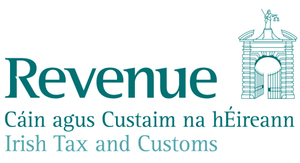From top: Apple CEO Tim Cook received an award at an IDA Ireland event in the National Concert Hall last January to mark Apple’s 40 years in Ireland, watched by then Taoiseach Leo Varadkar (left); Eamonn Kelly
Multinationals played a crucial role in lifting Ireland out of the last recession and they will again as we rebuild our economy after Covid. What does SF want to do? Tax them. https://t.co/B7n8esbzPN
— Leo Varadkar (@LeoVaradkar) October 11, 2020
Leo Varadkar’s comments in yesterday’s Business Post about taxing the multinationals brought into focus Ireland’s dependent relationship with the multinationals.
While it is generally agreed that the multinationals are important to the Irish economy, the suggestion that they should be entirely tax free speaks volumes about Irish dependency. Because in that relationship with the multinationals there is the sense of being minded, like children.
Independence
From that idea arises two further ideas. One, that we might have been far better off staying with Britain, since we obviously need an external authority to make things happen for us; and two, that in our dependent relationship with multinationals we can only ever be workers, giving our time and energies for the interests of others, who will export the profits and give us the occasional pat on the head.
Figuratively speaking it’s like we’re still serving the big house, it’s just a different big house.
Implicit in this dependent relationship is the idea that local businesses will never get into a position to compete.
In David McWilliams most recent Irish Times article “Why an Irish mortgage costs 80k more than a German one” he showed how Irish banks actually penalise Irish businesses by refusing to pass on lower EU interest rates to Irish businesses.
Alongside this unfair trading sits a kind of national inferiority complex where confidence is always low in the Irish themselves. I once knew a German woman who went to FAS seeking grant assistance and, as she said herself, once they heard she was German “All the doors opened”. Irish people at that time couldn’t even get a pat on the head from them.
Meanwhile, over on Twitter, banking whistleblower Jonathan Sugarman reminded Varadkar that if his government hadn’t spent over €8 million defending Apple’s right to withhold due taxes, that we would have plenty of ICU places to deal with the pandemic.
But Irish people aren’t the priority, except insofar as they might occupy promised multinational jobs at some point in the future.
Dependency
The ongoing dependency on the multinationals may actually go right to the heart of the meaning of democracy. Because in such a dependent relationship, our government often seem more like a managerial class working towards the interests of the multinationals.
The core idea of the relationship is based largely on the understandings of trickle-down economics, in that the multinationals will set up base here and provide jobs and presto! Everybody wins.
However, while this arrangement was progressive in the early 1960s, the ongoing effect has been arguably detrimental to Ireland’s sense of independence, and may simply be serving to postpone the cultural need to pose important questions in relation to post-colonialism and the meaning of independence.
The ongoing dependence on the multinationals may have had the effect of prolonging a kind of cultural learned helplessness, a dependence on greater powers, leaving Ireland stunted and ineffectual.
This ineffectual dependence was perhaps best exemplified in that embarrassing photo of Enda Kenny, the then taoiseach, being patted on the head by Nicolas Sarkozy.
This is where dependence has taken us. Lost children on the world stage.
So, while the multinationals walk away tax free and generously grant-aided, we feed off one another, the banks crippling Irish local businesses before they can get going; the service providers hammering the consumer for basics; while the main political parties surreptitiously privatise national assets, kindly divvying out opportunities for profit to foreign investors.
Condescension
In this ongoing dependent scenario, the people become a kind of servant class on the one hand, and a meek collective of exploited consumers on the other. While the politicians, essentially agents for foreign capital, wag the finger and presume to “teach” us, like Simon Harris over the weekend warning us against trick or treating at Halloween, as pretending to be sick might have the effect of unnecessarily scaring us.
It’s not trick or treating that scares most Irish people. It’s the likes of Harris and Varadkar stripping out the health service, scapegoating the poor, and happily creating homelessness and exploited workers, leaving them without union protection at the mercy of multinationals, like those Debenham workers still picketing for recognition and justice after all these months.
It’s the established Irish political class that scares people. Because it often seems that the established parties don’t work for Irish people, rather they presume to command, themselves apparently working for pats on the head from figures of foreign power.
While the strategy makes a certain sense – appeasing multi-nationals in return for jobs – the practise often comes across as unseemly, unfair and hopelessly regressive, imposing incalculable costs on native Irish confidence and business potential. As the rest of Europe learned long ago, appeasing does have costs down the line.
The multinationals get all the breaks while the Irish themselves are handicapped by red tape, inflated rates and official insinuations of inadequacy.
The cost of appeasing our multi-nationals with generous tax breaks and grant aid, in return for jobs, means we may never learn to create our own opportunities, and risk remaining forever dependent in a kind of phony independence, with only a flimsy tricolour to warm us when the vultures have finished feeding.
Eamonn Kelly is a freelance Writer and Playwright.
Previously: Eamonn Kelly on Broadsheet




